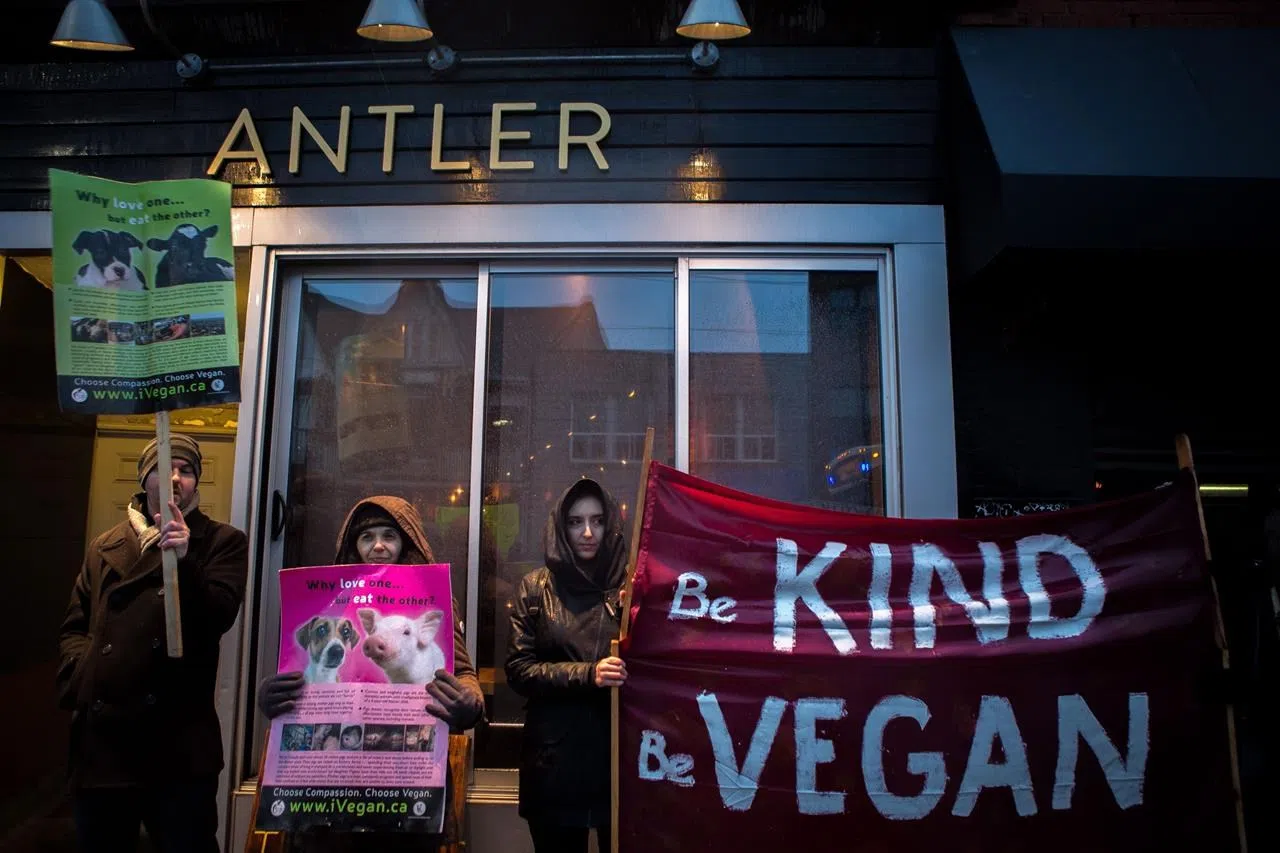
Ethical eating debate arises after vegan protesters target Toronto restaurant
TORONTO — A confrontation between animal rights activists and the owner of a restaurant who protesters say cut up and ate a piece of meat in front of them has inflamed tensions between vegans and sustainability-minded omnivores over which diet is best for ethical eating.
Grassroots animal rights activist Marni Ugar said demonstrators returned to Antler Kitchen & Bar in Toronto on Saturday, about a week after she said co-owner and chef Michael Hunter responded to a similar gathering outside the west-end eatery by carving up a large animal leg and eating the cooked meat in full view of protesters.
They plan to return again on Thursday evening, she said.
Ugar said the “sensationalized” confrontation on March 23 was the culmination of a series of protests against Antler, which according to the restaurant’s website, uses regionally sourced, seasonal ingredients and wild foods on its menu of Canadian cuisine, including offerings such as deer, wild boar and bison.


